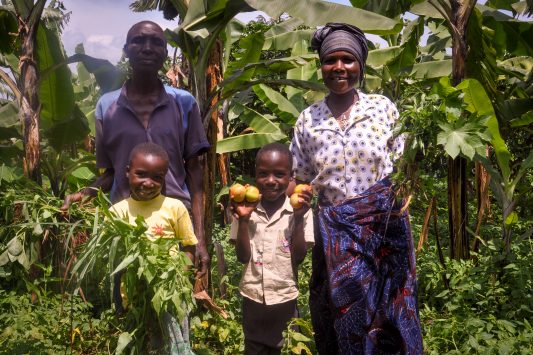I was compensated by World Vision for my time in writing this post. All opinions are my own.
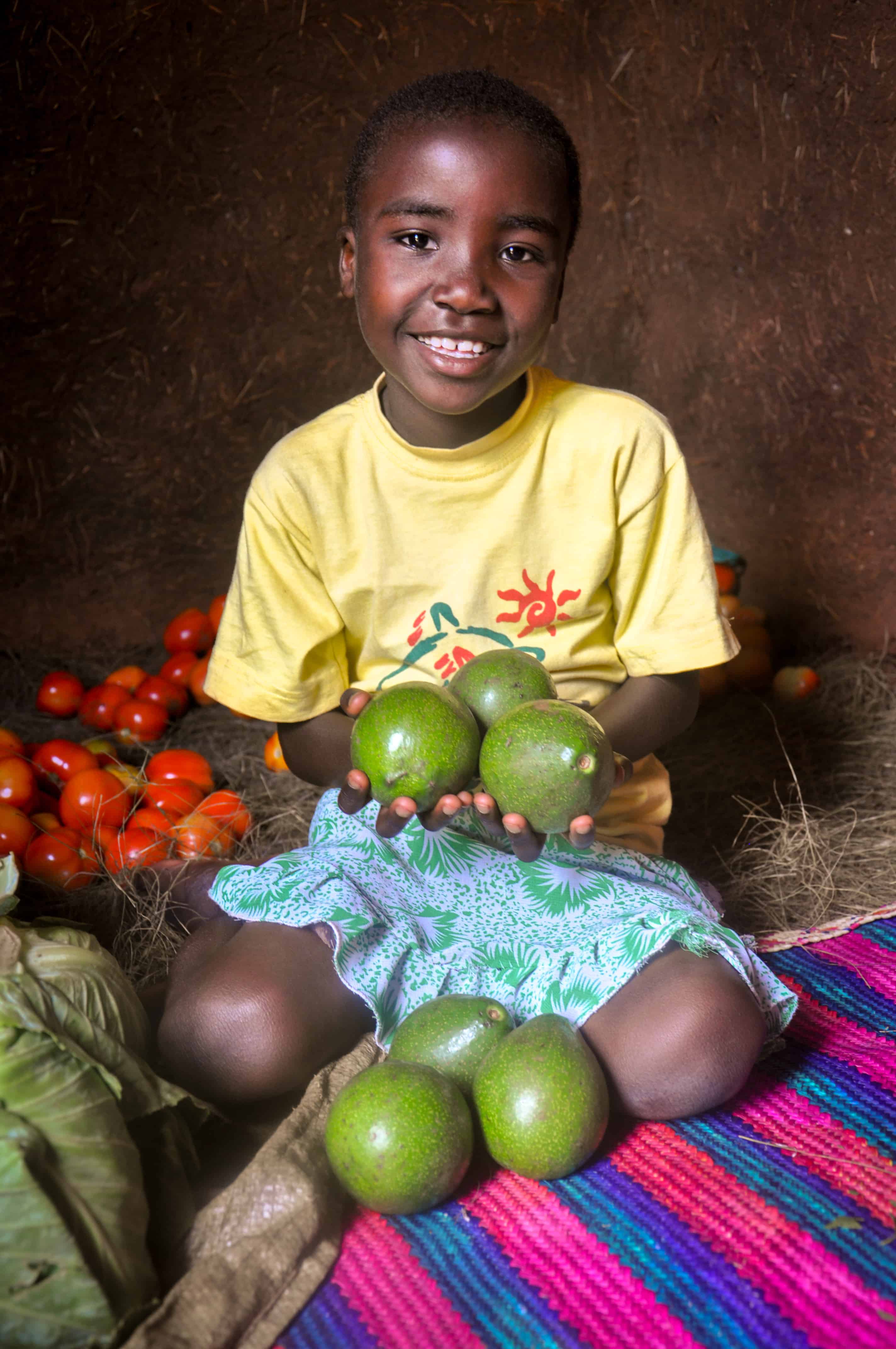
A World Vision Tanzania sponsored child Vanessa (6) happily holding avocadoes which shows food security at her home in Kitoko village located in north western Tanzania
- Child Sponsorship through World Vision is different:
- It’s not a handout – it’s a hand up! We come alongside children, families and communities to provide tools, training and hope so they can become self-sufficient.
- It’s child-focused and community-based. You’ll get to know, love and encourage a specific child while helping fund resources and improvements that benefit them and their community.
- It serves ALL children with Christ’s love. Motivated by our faith in Jesus, we serve all children regardless of race, religion, ethnicity, or gender. We go where other organizations can’t.
- It’s time-tested. We’ve been around for over 60 years, and we have refined our approach to cultivate a full solution to poverty and injustice.
- How the sponsorship process works:
- Choose a boy or girl in need to sponsor for an ongoing commitment of $39/month. You are the only sponsor for this child.
- Receive a packet with photos and more. Then your child will send you a letter!
- Watch your child and community grow. You can send emails, cards, photos, packages and more, or even visit them in person.
- Poverty is complex and rarely solved by one intervention. Depending on each community’s needs, a sponsored child—and his or her entire community—benefit from things like clean water through new or renovated wells, school fees and supplies, better education due to restored schools and teacher training, improved nutrition due to agricultural training, as well as healthcare clinics and immunizations.
- Every $1 donated equals $1.30 in impact, thanks to grants and product donations.
- The goal of World Vision sponsorship is to help your sponsored child and his or her community to break the cycle of poverty so they can step into the future with hope. Throughout our approximately 15-year involvement in communities, we manage, monitor, and evaluate progress toward the community’s goals. When these goals are met, World Vision can move on to other communities to serve other children in need of help.
Once upon a time, there was a wise man who used to go to the ocean to do his writing. He had a habit of walking on the beach before he began his work.
One day, as he was walking along the shore, he looked down the beach and saw a human figure moving like a dancer. He smiled to himself at the thought of someone who would dance to the day, and so, he walked faster to catch up.
As he got closer, he noticed that the figure was that of a young man, and that what he was doing was not dancing at all. The young man was reaching down to the shore, picking up small objects, and throwing them into the ocean.
He came closer still and called out “Good morning! May I ask what it is that you are doing?”
The young man paused, looked up, and replied “Throwing starfish into the ocean.”
“I must ask, then, why are you throwing starfish into the ocean?” asked the somewhat startled wise man.
To this, the young man replied, “The sun is up and the tide is going out. If I don’t throw them in, they’ll die.”
Upon hearing this, the wise man commented, “But, young man, do you not realize that there are miles and miles of beach and there are starfish all along every mile? You can’t possibly make a difference!”
At this, the young man bent down, picked up yet another starfish, and threw it into the ocean. As it met the water, he said,
“It made a difference for that one.”
Meet Vanessa. This is her story “Studying for my future”
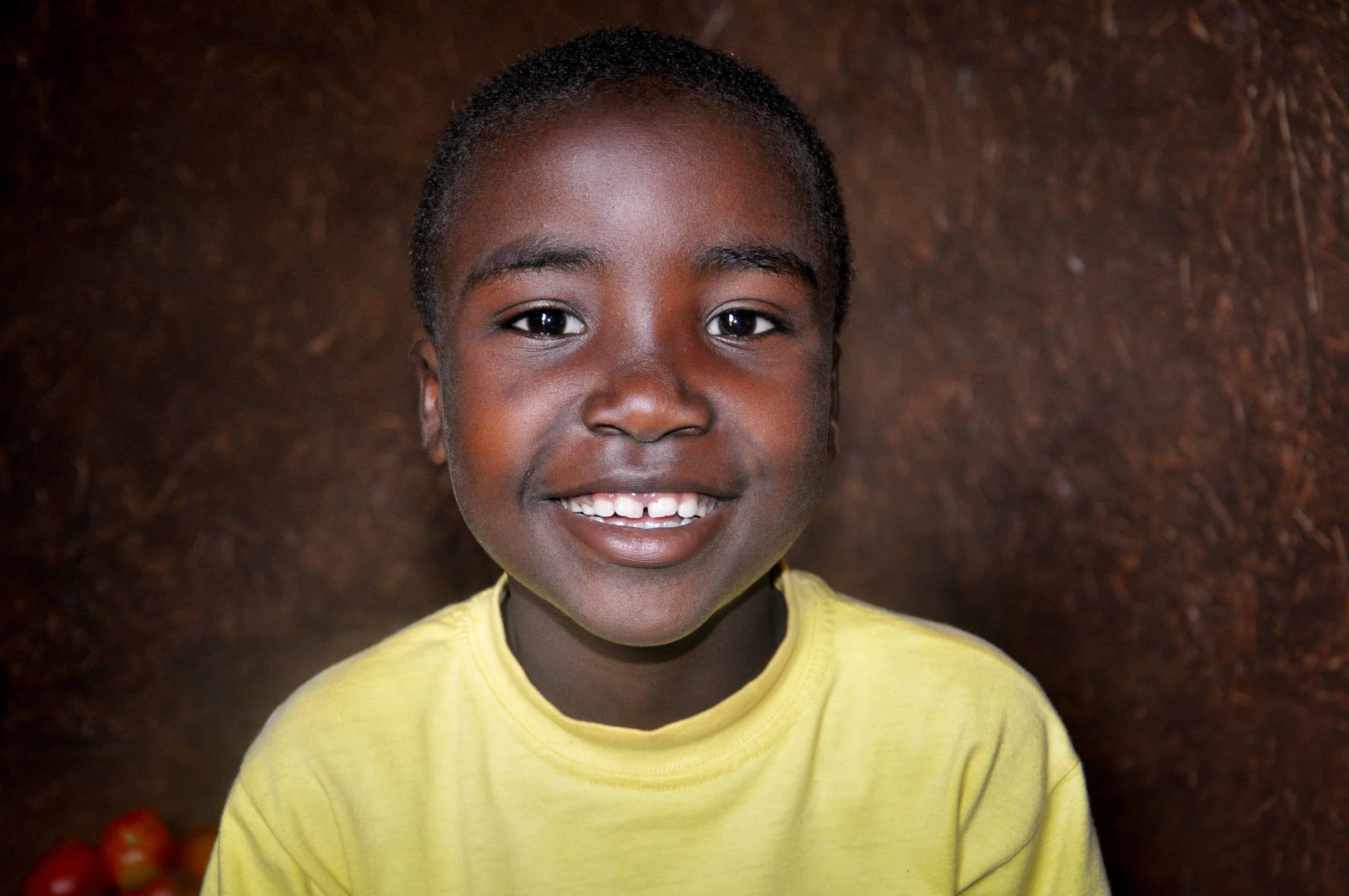
A World Vision Tanzania sponsored child Vanessa (6) posing a smile at her home in north western Tanzania
“Life has been anything but easy for six-year-old Vanessa who lives in northwestern Tanzania, in the village Kitoko with her parents (Evangelina 44 and Fedilishi 56) and seven siblings (Defroda 23, Ezbon 21, Freshen 18, Fironess 15, Anusiata 12, Lengimina 8 and Raban 7). They all live in a three bedroom small house with only one bed. Vanessa and her siblings are forced to sleep on the floor as the house can only protect them from the cold environment.
Vanessa is a beautiful and healthy girl with dark eyes. Her parents are farmers; they grow beans, peanuts and horticulture crops such as tomatoes, cabbage, green pepper, spinach and fruits.
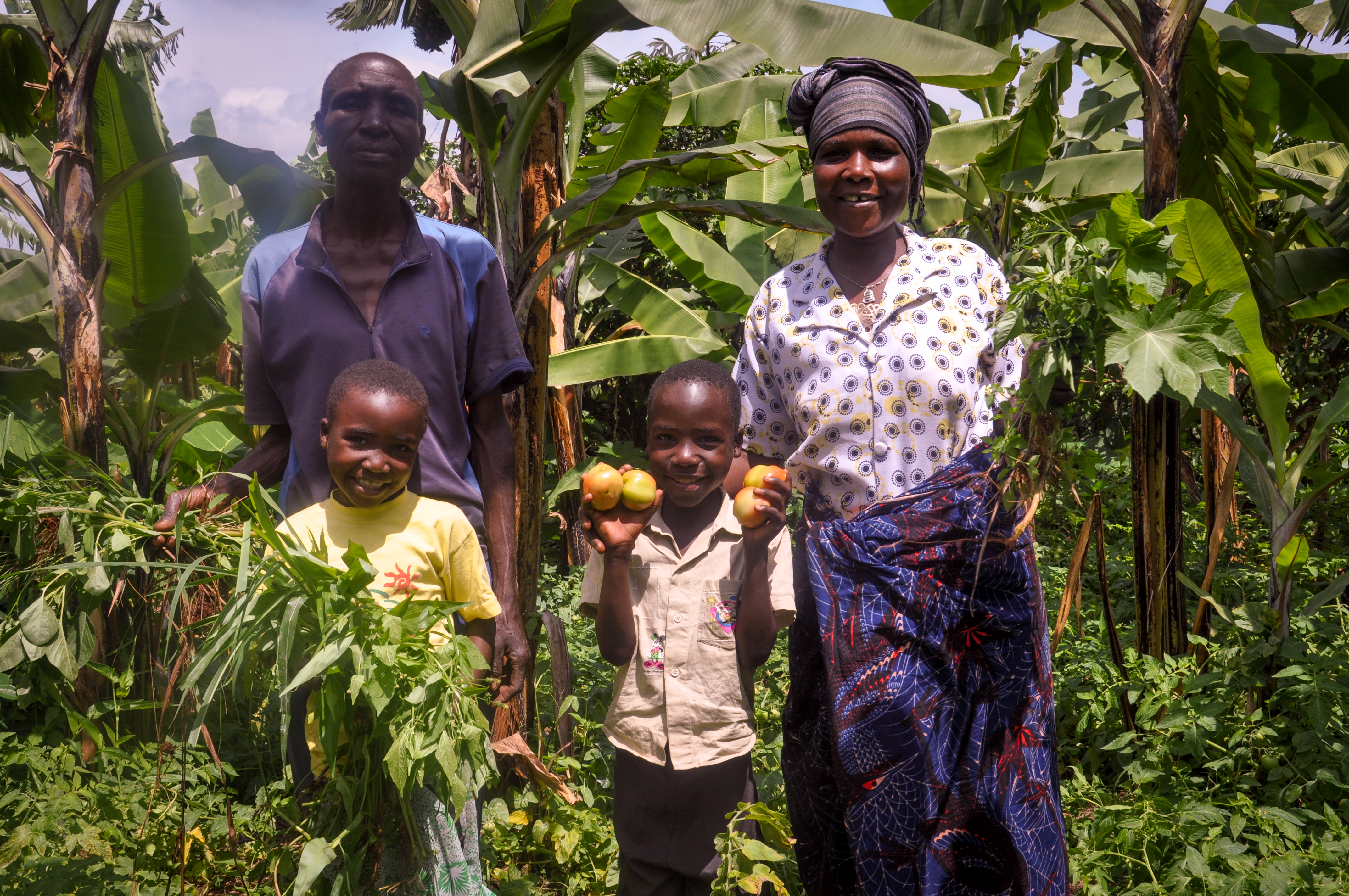
A World Vision Tanzania sponsored child Vanessa (6) (second right) standing with her family at their farm picking ripe tomatoes
Even though her family’s income is low, Vanessa likes to go to school. She is a class one student. She and her siblings go to school at Kitoko primary school.
“I like writing lesson,” she says. “I want to become a doctor, so that I can build a house for my parents” explains Vanessa.
“I know we don’t have lot of money, my parents take us to school so that we could have the best life,” she adds. Vanessa’s school has four buildings made of bricks and three made of mad with forty six desks, class three to seven students are forced to sit on the floor because the desks are not enough for the whole school.
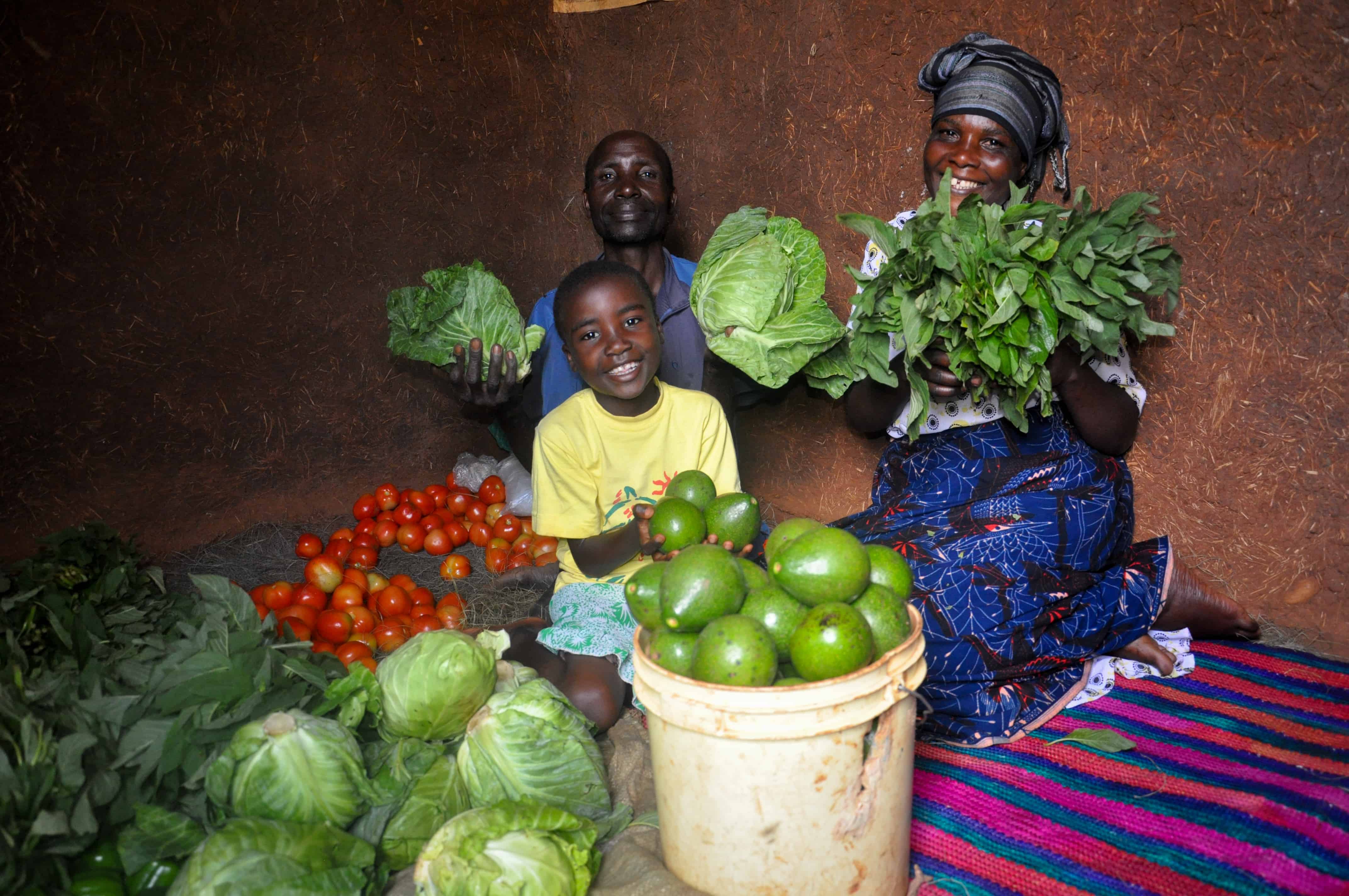
A World Vision Tanzania sponsored child Vanessa (6) (centre) is food secured as she holds their horticultural harvests with her parents
Being sponsored has changed Vanessa’s nutrition, “Initially, we didn’t know how to feed our children, we used to sell the vegetables instead of cooking at home,” says Vanessa’s mother, Evangelina. “World Vision trained us on how to prepare nutritious foods for children; I learnt how to mix foods, we eat vegetables, fruits and fish now.”
World Vision Tanzania Mbuka ADP has piped water into three schools located in three wards one of it being Kitoko primary school.
“The project has helps us, I don’t carry water to school anymore.” says Vanessa.
“Our children used to go to the toilet without water, they suffered from diarrhea,” says Evangelina. “We have also been mobilized to clean water sources, initially our water sources were so dirty.”
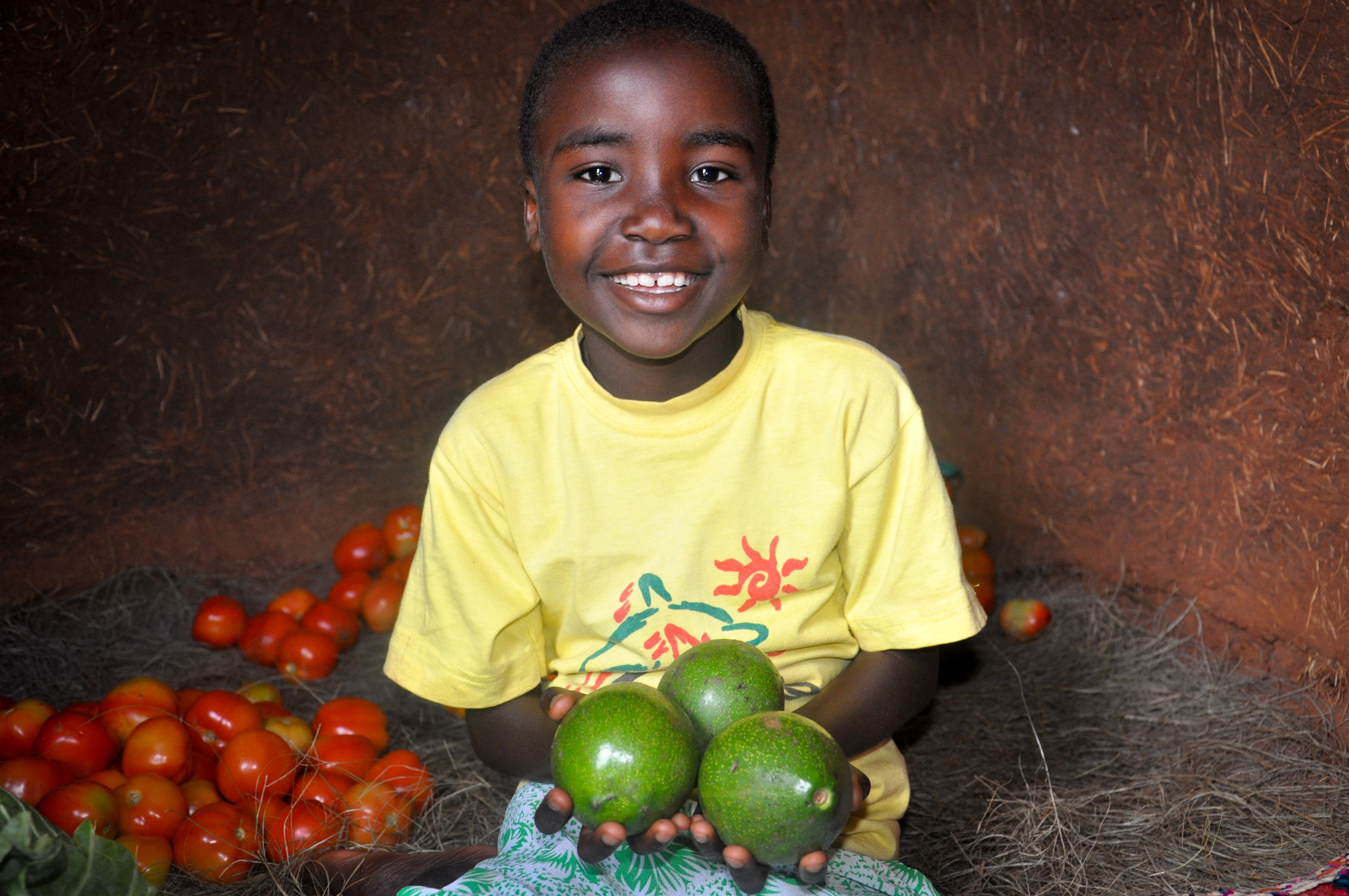
A World Vision Tanzania sponsored child Vanessa (6) happily holding avocadoes which shows food security at her home in Kitoko village located in north western Tanzania
Accessing the nearest hospital is a nightmare for the people in Kitoko; World Vision health project has constructed two dispensaries in two wards including Kitoko. “We used to walk 5 kilometers to the local health centre which was shared with two wards; Busheke and Mubunda; the situation was so bad before, there were limited facilities including medical supply, equipments and maternity ward,” says Evangelina. “We are thankful to World Vision for constructing a new dispensary in our village; we don’t have to share it with the neighboring villages, and pregnant women have now a resting room,” happily she says.
Vanessa does not have a relationship with her sponsors. “I will always be thankful to God for World Vision Tanzania for sponsoring me, how can I not be? They have improved my childhood,” she concludes.”
Author/photographer: Adda Amos Ngoya
Want to know more about this great organization?
Follow World Vision on all of their social channels for additional ways to give back:
Facebook, Twitter & Instagram
